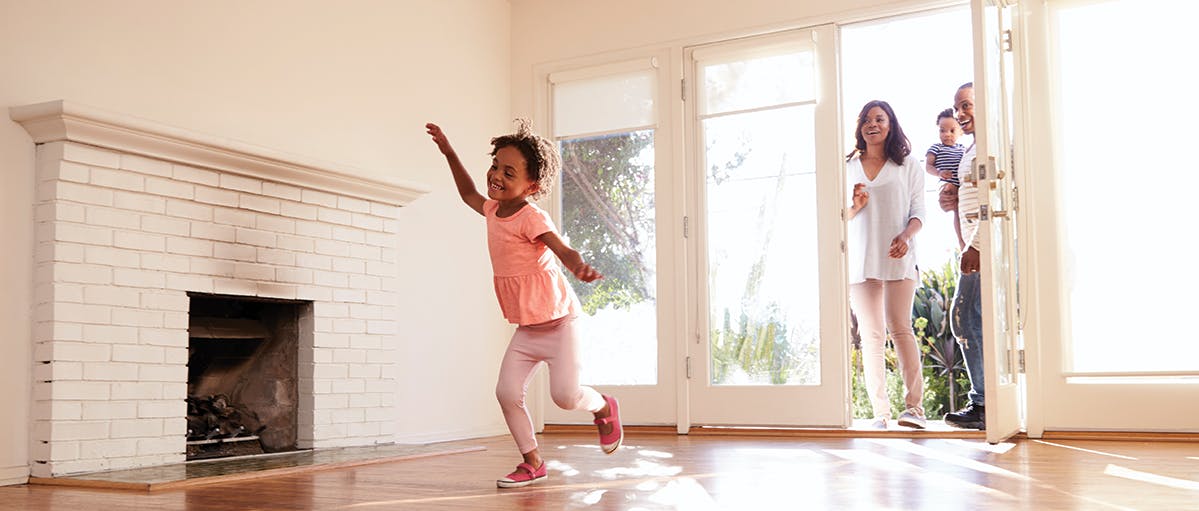
If you own rental real estate, sooner or later you're going to rent to families with children. This isn't normally a problem, but rental property owners are often understandably concerned about the damage that children can wreak on their properties. Children are prone to spill juice on carpets, draw on the walls with crayons and markers, and have all kinds of accidents that can result in minor property damage.
Can landlords refuse to rent to children? With a few exceptions that will be described shortly, the answer is no. The general rule in all 50 states is that you cannot discriminate against renters or applicants on the basis of family status due to the Fair Housing Act. Unless you fall under a few specific exemptions, all of the following are clearly prohibited under federal law:
- Discriminating against families with children
- Discouraging families with children from renting
- Relegate families with children to specific areas of a housing complex
- Discriminate against or screen out pregnant women
- Discriminate against anyone in the middle of trying to gain custody of a minor
Exemptions for Discriminating Against Children
The law allows housing developments to discriminate against families with children if they are occupied solely by those age 62 or older, or if 80% of the occupied dwellings have one or more occupants age 55 or older.
There is also a loophole in some cities and states for rental property owners who own or have partial interest in fewer than three rental units and who rent directly "without the services of a real estate licensee or the facilities of any person in the business of selling or renting dwellings."
Property managers can't discriminate on your behalf, and you can't discriminate against families if you have a property manager. However, a good property manager should be able to help prevent you from accidentally falling afoul of the regulations. This can happen very easily, even in situations where landlords have no intent to discriminate.
Be Careful With Your Ads and Marketing Materials
Because the law says you can't discriminate against families with children, it would be inadvisable to take out an ad on Craigslist that says something to the effect of "NO KIDS."
Rental property owners have gotten into legal trouble for more subtle means of discouraging families with children, even when it wasn't clear that there was any criminal intent to discriminate. If you're not careful, you can get into trouble for simply being sloppy about describing your property.
For example, the following rental property descriptions can be construed as attempts to keep families with children away:
- "Singles or couples only"
- "Perfect for couples"
- "Ideal for urban professionals"
- "Ideal for college students"
- "Quiet environment for mature individuals"
In each case, you could get prosecuted for overt discrimination or attract the attention of fair housing testers. These testers pose as applicants, come and see the rental property and speak with you, and then report any whiff of discrimination to the district attorney's office.
Forbidden Rules Against Children
There are also certain types of rules targeting children that cannot be made. Here are just a few:
- You can't prohibit children from using the pool, but you can prohibit unsupervised children from using the pool.
- You can't have special adult hours for using the pool, but you can declare the pool off-limits during specific hours of the day if using the pool at that time disturbs nearby residents.
- You can't pass a blanket ban on tricycles.
A Real-World Scenario: Minnesota Rental Property Owner Lost for Discriminating Against Children
A Minnesota rental property owner paid $110,000 in a case brought against them alleging they enacted specific rules for their condominium complex that had a disparate impact amounting to discrimination against families with children.
Here are the specific rules that got them in trouble with federal regulators:
- Requiring children to be supervised by an adult at all times when playing in common areas.
- Discriminating against children by prohibiting or unreasonably restricting them from playing in common areas.
- Making statements in the condominium complex rulebook and public notices that indicated a preference against children playing in the common areas.
- Selectively enforcing rules pertaining to the common areas by issuing warnings and violation notices to residents with children, but not to adult residents engaging in the same activities.
- Failing to comply with the complaint, enforcement, and appeals procedure set forth in the condominium complex's rules and regulations for violation notices issued to residents with children.
How to Avoid Discriminating Against Children
To protect yourself, put your applicant screening and selection criteria on paper and stick with it. Have an attorney look it over and ensure it's compliant with applicable laws, and then keep careful records that demonstrate that you selected renters according to these specific criteria.
Your criteria, of course, shouldn't take age, race, religion, national origin, and gender into account. Look at credit scores, job history, income/rent ratios, references, and the like, and stick to those criteria.
When you start talking about the busy streets, or how dangerous the bus stop is for kids, or express concern about how your pregnant applicant is going to manage the stairs, you open the door to possible enforcement action.
Set Appropriate Security Deposits
You need to be consistent about your security deposit policy—you cannot charge a higher deposit for families with children. Make sure the deposit is large enough to pay for whatever damage you can reasonably expect a young child to inflict on carpets, walls, and the rest of the rental. Otherwise, you're taking on the risk.
